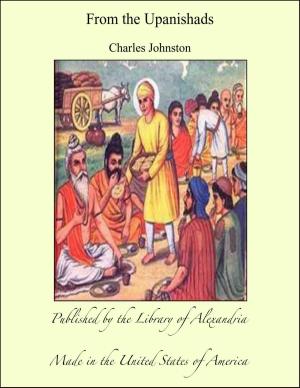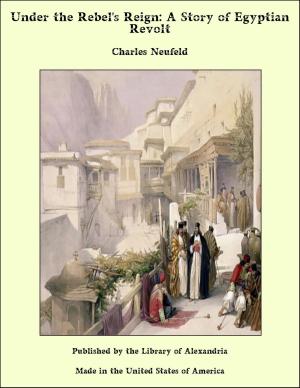The Truth about Opium: Being a Refutation of the Fallacies of the Anti-Opium Society and a Defence of the Indo-China Opium Trade
Nonfiction, Religion & Spirituality, New Age, History, Fiction & Literature| Author: | William H. Brereton | ISBN: | 9781465590398 |
| Publisher: | Library of Alexandria | Publication: | March 8, 2015 |
| Imprint: | Language: | English |
| Author: | William H. Brereton |
| ISBN: | 9781465590398 |
| Publisher: | Library of Alexandria |
| Publication: | March 8, 2015 |
| Imprint: | |
| Language: | English |
The object of these lectures is to tell you what I know about opium smoking in China—a very important subject, involving the retention or loss of more than seven millions sterling to the revenue of India, and what is far more precious, the character and reputation of this great country. With respect to the former, I would simply observe that I do not intend to deal with the question on mere grounds of expediency, strong as such grounds unquestionably are, for, if I believed that one-half of what is asserted by the “Anglo-Oriental Society for the Suppression of the Opium Trade,” as to the alleged baneful effects of opium smoking upon the Chinese, were true, I should be the first to raise my humble voice against the traffic, even though it involved the loss, not of seven millions sterling, but of seventy times seven. But it is because I know that these statements and all the grave charges made by the supporters of that society, and repeated from day to day, against the Government of India and the Government of this country, and also against the British merchants of China, to be not only gross exaggerations but absolutely untrue—mere shadowy figments, phantasies, and delusions—that I come forward to draw aside the curtain, and show you that behind these charges there is no substance. Were my knowledge of the opium question derived merely from books and pamphlets, articles in the newspapers, and ordinary gossip, I would not venture to trespass upon your time and attention, because in that respect you have at your disposal the same means of information as I have myself. But I come before you with considerable personal experience, and special knowledge of the subject, having lived and practised as a solicitor for nearly fifteen years in Hong Kong, where I had daily experience, not only of the custom and effects of opium smoking, but also of the trade in opium in both its crude and prepared state. I had there the honour of being solicitor to the leading British and other foreign firms, as well as to the Chinese, from the wealthy merchant to the humble coolie; so that during the whole of that period down to the present time I have had intimate relations in China with foreigners and natives, especially with those engaged in the opium trade. Under these circumstances I had daily intercourse with the people from whom the best and most trustworthy information on the subject of opium and opium smoking could be obtained, and my experience is that opium smoking, as practised by the Chinese, is perfectly innocuous. This is a fact so patent that it forces itself upon the attention of every intelligent resident in China who has given ordinary attention to the subject.
The object of these lectures is to tell you what I know about opium smoking in China—a very important subject, involving the retention or loss of more than seven millions sterling to the revenue of India, and what is far more precious, the character and reputation of this great country. With respect to the former, I would simply observe that I do not intend to deal with the question on mere grounds of expediency, strong as such grounds unquestionably are, for, if I believed that one-half of what is asserted by the “Anglo-Oriental Society for the Suppression of the Opium Trade,” as to the alleged baneful effects of opium smoking upon the Chinese, were true, I should be the first to raise my humble voice against the traffic, even though it involved the loss, not of seven millions sterling, but of seventy times seven. But it is because I know that these statements and all the grave charges made by the supporters of that society, and repeated from day to day, against the Government of India and the Government of this country, and also against the British merchants of China, to be not only gross exaggerations but absolutely untrue—mere shadowy figments, phantasies, and delusions—that I come forward to draw aside the curtain, and show you that behind these charges there is no substance. Were my knowledge of the opium question derived merely from books and pamphlets, articles in the newspapers, and ordinary gossip, I would not venture to trespass upon your time and attention, because in that respect you have at your disposal the same means of information as I have myself. But I come before you with considerable personal experience, and special knowledge of the subject, having lived and practised as a solicitor for nearly fifteen years in Hong Kong, where I had daily experience, not only of the custom and effects of opium smoking, but also of the trade in opium in both its crude and prepared state. I had there the honour of being solicitor to the leading British and other foreign firms, as well as to the Chinese, from the wealthy merchant to the humble coolie; so that during the whole of that period down to the present time I have had intimate relations in China with foreigners and natives, especially with those engaged in the opium trade. Under these circumstances I had daily intercourse with the people from whom the best and most trustworthy information on the subject of opium and opium smoking could be obtained, and my experience is that opium smoking, as practised by the Chinese, is perfectly innocuous. This is a fact so patent that it forces itself upon the attention of every intelligent resident in China who has given ordinary attention to the subject.















